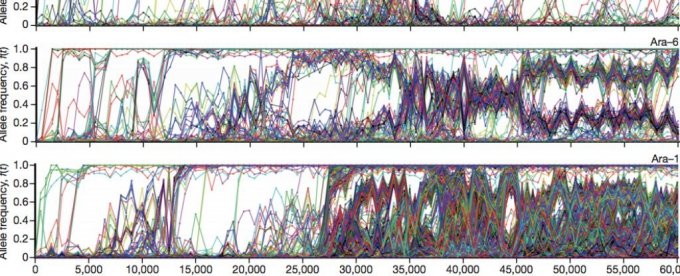An international group of researchers has rebutted the generally accepted hypothesis that evolution ceases when the species is maximally adapted to the environment, which has reached its zenith of development.

As evidenced in a study published in the scientific journal ''Nature'', observing the large organism - including humans - is practically impossible due to the slow change of generations, therefore scientists have sought to study the evolution of microorganisms, among which the replacement of generations occurs much faster.
During a long experiment that began in 1988, researchers observed gut sticks (Escherichia coli), which grow so fast that evolutionary changes can be observed over several decades.
To reach such a discovery, the study's author Richard Lenski used 12 tubes with E. coli bacteria added to a glucose-based food source. Subsequently, bacteria were left at 37 degrees Celsius at night.
The bacteria were left with only so much nutrients that they could survive until the next morning, putting pressure on the environment and provoking bacterial adaptation to more harsh living conditions.

The next morning, the researcher took samples of reproductive bacteria and placed them in a new test tube containing identical conditions and repeated their experiment. In this way, the researcher acted for several decades, generating a completely new bacterial population.
In addition, every 75 days, during which about 500 bacterial genera were replaced, some of them were frozen, so that researchers could later detect evolutionary changes in them.
As a result, it turned out that bacterial cells have become significantly larger over the course of 30 years. As well as after 2000 bacterial generations, one of the bacterial cultures developed the ability to generate a separate source of food from glucose.
Although this is an amazing discovery, this is exactly what one could expect from evolution. Although the evolution of bacteria slowed down over the years, it did not stop at all, as was previously thought.